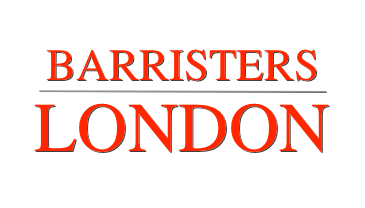Record Keeping – The Professional Duty to be Accurate and Timely
Professionals are under a duty under their professional codes to make clear and accurate records.
Poor or false record keeping is at the heart of many complaints. Often events regulators discover that important events or progress reports are not recorded. There is a risk that an adjudicator will find that if it was not recorded, it did not happen!
Another problem that is encountered is that handwriting is often illegible, records are ambiguous, unclear and are not signed or dated.
Records are kept in a number of ways:
- handwritten notes
- emails
- text messages.
- social media posts
- letters to and from professionals
- laboratory reports
- professional reports/opinions
- x-rays
- printouts from monitoring equipment
- incident reports and statements
- photographs
- videos
- tape-recordings of telephone conversations
- contemporaneaous notes of interviews
Records can be made retrospectively so long as it is clear they are made retrospectively.
Professionals are responsible and accountable for any record they make. It is therefore important to ensure that there is no inappropriate commentary as it is possible for records to be accessed under legislation such as The Public Records Act 1958, Access to Health records 1990 and the Data Protection Act 1998. A few years ago complaints were made about records kept by professionals who had written in the margin of the records, about a client, “Fith”. They meant: ‘F****** in the head’, which meant the client was mad. This was of course wholly uncalled for and entirely unprofessional, while risking a formal finding of professional misconduct being made.
The principles of good practice are to ensure handwriting is legible, that all entries to records should be signed and, in the case of written records, that the professional’s name and job title should be ‘printed’ alongside the first entry.
In line with local policies, the date and time should be visible on all records. This should be in real time, in chronological order, and be as close to the actual time of the event as possible. Records should be accurate and recorded in such a way that the meaning is clear.
Records should be factual and not include unnecessary abbreviations, jargon, meaningless phrases or irrelevant speculation. Professional judgement should be used to decide what is relevant and what should be recorded.
A record should be made of details of any assessments and reviews undertaken and provide clear evidence of the arrangements that have made for the future, for example, care and treatment. Records should identify any risks or problems that have arisen and show the action taken to deal with them. All professionals have a duty to communicate fully and effectively with colleagues, ensuring that they have all the information they need.
Records must not be altered or destroyed without being authorised to do so. If records need to be altered, name and job title must be stated, the original documentation be signed and dated, making sure they are clear and auditable. The language used should be easily understood. Records should be readable when photocopied or scanned. It is obvious that records should never be falsified.
Black ink should always be used to ensure that any copying of the documents that is later necessary will pick up all of the content.
A number of cases have explored the issue of alleged inadequate record-keeping:
The case of Jagdev Singh Wasu v General Dental Council (2013) EWHC 3782 (Admin) involved a dentist who faced multiple allegations of inadequate record keeping and falsifying records.
Promod Kumar Bhatnagar v General Medical Council (2013) involved a doctor whofaced allegations of falsifying documents to mislead the Medical Practitioner’s Tribunal.
Prendergast v Sam and Dee Ltd, Times, March 24th, 1988 involved an allegation of an illegible prescription compiled by a GP.
These are just some of the examples of cases that are brought to hearings. There may be many other cases of the like that do not lead to law reports being published.
If you are a professional facing an allegation of poor or inappropriate record-keeping, call us without obligation and in strict confidence to discuss how we can assist you.
If you are a professional facing allegations relating to record-keeping, contact Barristers.London without obligation and in strict confidence to discuss our legal advice and representation services. Our fees are competitve.
Back to Regulatory and Disciplinary Law Page

Request a
Enquiries
